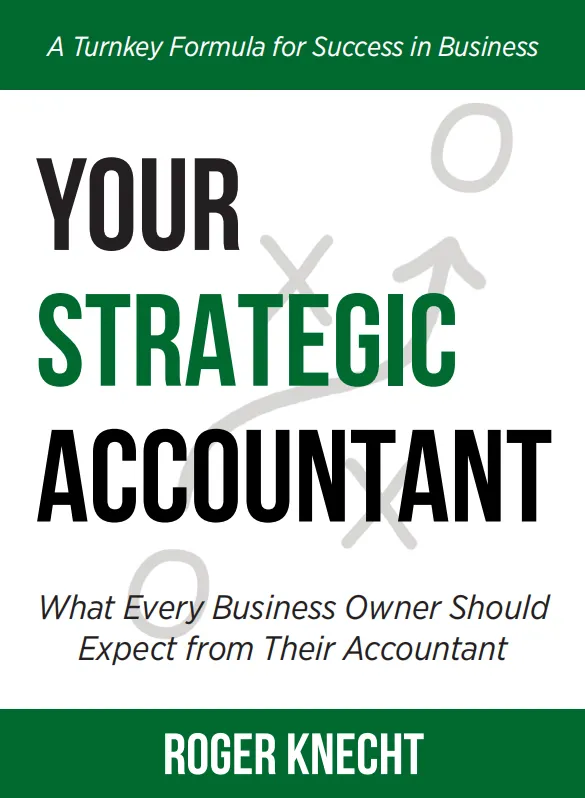Keeping meticulous small business books is not just a necessity for tax season; it’s the financial compass that guides your company through the tides of the business world. Accurate bookkeeping is crucial for understanding the financial health of your business, making informed decisions, and ensuring legal compliance. In this article, we’ll provide essential tips for keeping books for small businesses, recommend helpful startup resources, and suggest some entrepreneur books that can enhance your financial acumen.
Understand the Basics of Bookkeeping
Before diving into the complexities of financial management, it’s vital to grasp the foundational concepts of bookkeeping. This includes understanding assets, liabilities, equity, revenue, and expenses. These are the five pillars that will support all of your company’s financial transactions.
Set Up Your Business Accounts
When starting your own bookkeeping business, one of the first steps should be to open a business bank account. This separates your personal finances from your business dealings, which is essential for accurate bookkeeping and easier tax preparation. Additionally, consider setting up a business credit card to track expenses efficiently.
Choose the Right Bookkeeping System
There are two main bookkeeping systems: single-entry and double-entry. The single-entry system is simpler and may be suitable for very small businesses with straightforward financial transactions. However, the double-entry system is more robust, ensuring that for every debit entry, there is a corresponding credit entry, thus maintaining the accounting equation balance.

Record Every Financial Transaction
Documenting every business transaction is critical to keeping accurate books. Whether it’s a minor office supply purchase or a large sale, every entry matters. Employ a consistent system for recording transactions, such as using accounting software or a ledger book.
Utilize Technology for Efficiency
In today’s digital age, leveraging technology can greatly simplify the bookkeeping process. There are many accounting software options available that can automate tasks, reduce errors, and provide valuable insights into your business’s financial health.
Select Accounting Software
When keeping books for small business, choose accounting and bookkeeping software, look for features that suit your business needs, such as invoicing, expense tracking, and financial reporting. Popular choices for small businesses include QuickBooks, Xero, and FreshBooks. These platforms often offer cloud-based solutions, allowing you to access your financial data from anywhere.
Become a QuickBooks Specialist
Enhance your skills by becoming a QuickBooks Specialist with Universal Accounting Center’s online QuickBooks Certification program. After completing the course, you can validate your expertise through an examination process. Successful candidates earn the esteemed title of Certified QuickBooks Specialist, signifying their mastery of QuickBooks and elevating their credibility and expertise in the field.
Make sure you have a strong understanding of accounting principles and are proficient in using bookkeeping software. If necessary, get certified by obtaining a bookkeeping certification or taking online courses to refresh your skills.
Universal Accounting School’s Professional Bookkeeping Certification Program
The Professional Bookkeeper™ certification showcases expertise in bookkeeping practices specifically tailored for small to mid-sized businesses. It signifies a bookkeeper’s dedication to their profession and their ability to deliver exceptional services to employers or clients. Whether you aim to specialize in bookkeeping for small to mid-sized businesses or seek credentials for career advancement, the Professional Bookkeeper Certification Program is an excellent choice.
Consider Add-On Services
Many accounting software providers offer additional services like payroll processing, tax preparation and planning services, and inventory management. These can streamline your operations and ensure seamless integration with your bookkeeping practices.
Stay Organized and Consistent
Organization is the cornerstone of effective bookkeeping. Consistent habits and well-maintained records will save you time and prevent stress when it comes to financial analysis or preparing for tax season.
Develop a Filing System
Create a system for organizing receipts, invoices, and other financial documents. This can be a physical filing cabinet or a digital system using cloud storage. Whichever method you choose, categorize each document clearly and back up your data regularly.
Schedule Regular Bookkeeping Sessions
Set aside time each week to update your books. Regular maintenance prevents the workload from becoming overwhelming and helps you catch errors or discrepancies early on.
Monitor Cash Flow
Cash flow is the lifeblood of any business. Understanding where your money is coming from and where it’s going is essential for sustainability and growth.
Analyze Profit and Loss Statements
Regularly review your profit and loss statement to understand your business’s profitability. This will help you identify trends, such as seasonal fluctuations in income or expenses, and adjust your strategy accordingly.
Become a Profit and Growth Expert
Universal Accounting Centre provides tailored business solutions and accelerators, equipping bookkeepers with the tools and strategies needed to optimize operations and drive growth in their newly established bookkeeping businesses.
Keep an Eye on Accounts Receivable and Payable
Stay on top of money owed to you and money you owe. Prompt invoicing and following up on late payments will ensure a healthy cash flow, while paying your own bills on time will maintain good relationships with suppliers and avoid late fees.
Plan for Taxes
Taxes can be a complex and daunting aspect of running a business, but with proper preparation, they don’t have to be.
Understand Your Tax Obligations
Depending on your business structure and location, your tax responsibilities will vary. Familiarize yourself with the relevant tax laws and deadlines to avoid penalties. If necessary, consult with a tax professional for guidance.
Set Aside Money for Taxes
To prevent a scramble for funds come tax season, allocate a portion of your earnings to a separate tax account throughout the year.
Learn from the Experts
To bolster your bookkeeping knowledge, consider reading entrepreneur books that focus on financial literacy and management. Some recommended titles include “Your Strategic Accountant” by Roger Knecht, “Profit First” by Mike Michalowicz, “The Accounting Game” by Darrell Mullis and Judith Orloff, which simplifies accounting concepts using a lemonade stand metaphor, and “Financial Intelligence for Entrepreneurs” by Karen Berman and Joe Knight, which teaches you how to use financial data to make smarter business decisions.
Seek Professional Help When Needed
While many small business owners take a DIY approach to bookkeeping, there’s no shame in seeking professional help. Hiring a bookkeeper or accountant can provide peace of mind, ensure accuracy, and free up your time to focus on building your business.

When to Hire a Professional
If you’re feeling overwhelmed, notice frequent errors, or your business is growing rapidly, it might be time to hire a professional. They can also provide valuable advice on financial planning and tax strategies.
Stay Educated and Adaptable
The world of finance and bookkeeping is ever-evolving, with new regulations, technologies, and best practices emerging regularly. Stay informed by attending workshops, webinars, or enrolling in courses. Networking with other entrepreneurs and joining business groups can also provide valuable insights and support.
Continuous Learning
Invest in your financial education by keeping up with industry news, attending relevant events, and seeking mentorship from more experienced business owners. This proactive approach will empower you to manage your finances with confidence.
News
A global tax agreement is at risk due to potential U.S. Senate deadlock, leading countries to consider unilateral digital taxes on big tech companies. The OECD-brokered deal, involving over 140 countries, aims to redistribute $200 billion in annual profits from multinational corporations but requires U.S. ratification, which faces significant opposition. With the ratification process in doubt, countries like Canada are moving forward with their own digital taxes, threatening to reignite tax disputes and complicate international relations. As the June 30 deadline approaches, global tax negotiations face uncertainty.
Conclusion
Keeping accurate books for your small business is not just about compliance; it’s about gaining clarity on your financial situation to make informed decisions that drive success. By understanding the basics, utilizing technology, staying organized, monitoring cash flow, planning for taxes, and continually educating yourself, you’ll establish a strong financial foundation for your business. Remember, investing time and effort into bookkeeping will pay dividends in the form of a thriving, financially stable business.










